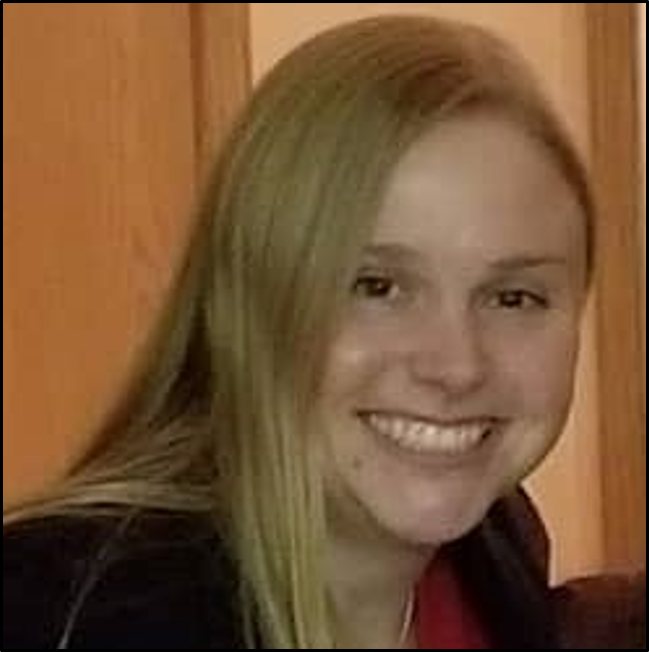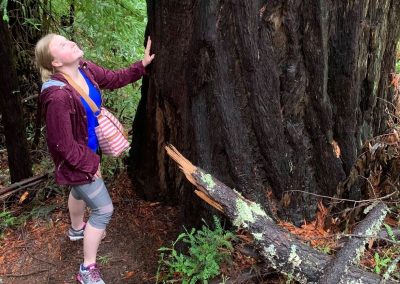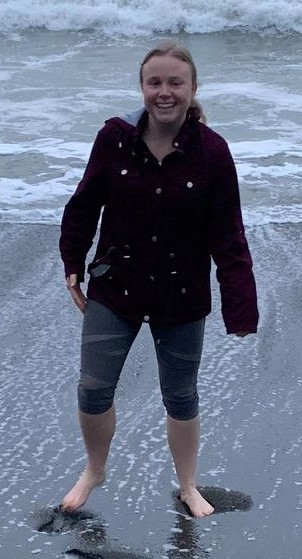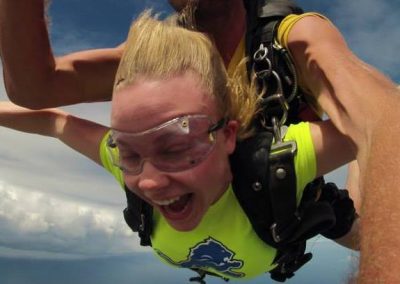Jamie Ward
Postdoctoral Research Fellow
4840 S. State Rd.
Ann Arbor, MI 48108-9719
Photo Gallery
Profile:
Jamie Ward, PhD, is a CIGLR postdoctoral fellow working with Yi Hong, PhD, and Ayumi Fujisaki-Manome, PhD, and the NOAA-GLERL Bipartisan Infrastructure Law (Lauren Fry, PhD, leads the BIL-SA effort): Subseasonal to Annual (BIL-SA) group to advance our understanding of atmospheric influences on Great Lakes water supply, and how we can use this information to improve future water level forecasting. Before joining CIGLR, Jamie investigated Arctic sea ice dynamics in global climate models at York University (2021-2022; Toronto, Ontario) and the regional variability of extratropical cyclone impacts on Antarctic sea ice at the University of Michigan (2020-2021) as a postdoctoral researcher. As a graduate student in the University of Michigan’s department of Climate and Space Sciences and Engineering, Jamie studied atmosphere-ice sheet interactions over the Greenland Ice Sheet using model output, reanalysis data, and satellite observations.
Education:
-
- Ph.D., Atmospheric Sciences, University of Michigan, 2020
- MS, Atmospheric, Oceanic, and Space Sciences, University of Michigan, 2016
- MA, Geography, Indiana State University, 2014
- BS, Environmental Science and Planning, University of Michigan-Flint, 2011
- BA, Mathematics, University of Michigan-Flint, 2011
Research Interest/Area of Expertise:
I use a combination of climate model, reanalysis, and observational data to research the effects of atmospheric on ice sheets, sea ice, and Great Lakes water supply.
-
- How are Great Lakes regional precipitation, evaporation, and runoff processes affected by planetary- and synoptic-scale atmospheric circulation mechanisms?
- How do global climate models represent sea ice drift in the Arctic? How will sea ice drift patterns change in the future?
- How does cyclone geography in the Southern Ocean impact moisture transport and surface energy fluxes over sea ice? How do these processes affect sea ice growth?
- How does historical Greenland blocking affect surface energy balance and snowmelt processes on the Greenland Ice Sheet? How will these processes change in different future warming scenarios?
- How are Greenland Ice Sheet surface energy flux and snowmelt processes affected by black carbon suspended in the atmosphere and deposited on the snow?
Publications
Recent Publications:
Ward, J.L., Flanner, M.G., & Dunn-Siguouin, E. (2020). Impacts of Greenland Block Location on Clouds and Surface Energy Fluxes over the Greenland Ice Sheet. Journal of Geophysical Research: Atmospheres, 125, e2020JD033172. (DOI:10.1029/2020JD033172). [Altmetric Score]
Ward, J.L., Flanner, M.G., Bergin, M., Dibb, J.E., Polashenski, C.M., Soja, A.J., and Thomas, J.L. (2018). Modeled response of Greenland snowmelt to the presence of biomass burning-based absorbing aerosols in the atmosphere and snow. Journal of Geophysical Research: Atmospheres, 123. (DOI:10.1029/2017JD027878).
Ward, J. (2015). The use of atmospheric analogues to predict Alberta Clipper storm trajectories in a changing global climate. Applied Geography, 60, 274-279. (DOI:10.1016/j.apgeog.2014.12.005).
Presentations
Hong, Y., Fry, L., Orendorf, S., Wright, D., Shin, S., Mroczka, B., Kessler, J., Ward, J.L., Fujisaki-Manome, A., & Gronewold, A. 2023. Operational forecasting of net basin supply for the Great Lakes: A combined climate data ensemble and National Water Model assessment. Oral Presentation at the International Association for Great Lakes Research 66th Annual Conference on Great Lakes Research, Toronto, Ontario, Canada.
Ward, J.L. and Tandon, N.F. 2022. Why do simulated Arctic sea ice drift speeds decrease in the 21st century? Oral Presentation at the American Geophysical Union Fall Meeting, Chicago, Illinois.
Ward, J.L. and Tandon, N.F. 2022. Why do simulated trends of Arctic sea ice drift speed go from positive in the 20th century to negative in the 21st century? Oral Presentation at the 56th Canadian Meteorological and Oceanographic Society (CMOS) Congress, virtual.



